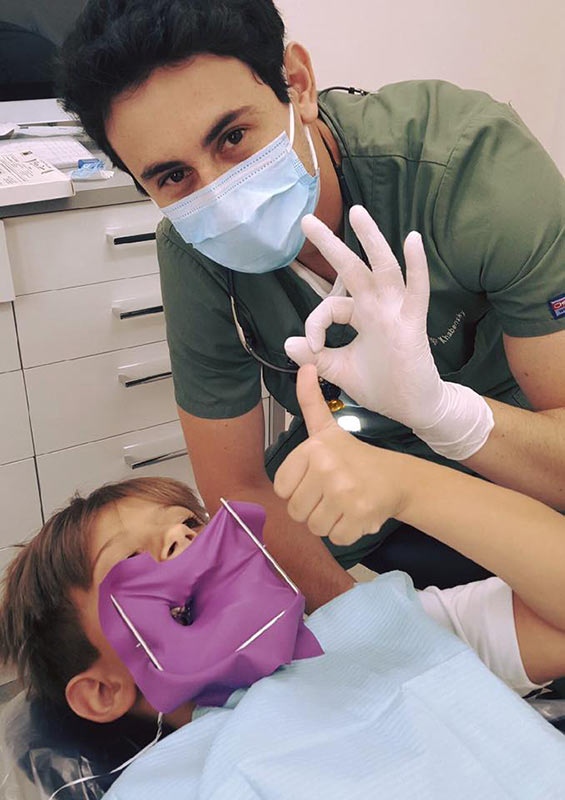Safety Net in Pediatric Dentistry: Promoting Healthy Behaviors for Stronger Pearly Whites and More Vibrant Smiles
In the world of pediatric dentistry, cultivating preventative measures plays a crucial role in cultivating a foundation for long-lasting dental health. As children's teeth are prone to decay and various oral concerns, instilling healthy and balanced practices from a very early age is vital. From the significance of routine dental sees to efficient oral health practices and the role of fluoride in precautionary care, there exist crucial approaches that can considerably influence a child's oral well-being. pediatric dentist. The trip to advertising stronger teeth and brighter smiles prolongs past these basic practices. Keep tuned to uncover just how an all natural strategy to pediatric oral treatment can lead the method for a lifetime of optimal dental wellness.
Significance of Very Early Oral Check Outs
Very early dental gos to play an important role in developing a foundation for ideal oral wellness in kids. Presenting kids to the dental practitioner at a very early age not just assists to avoid oral problems but additionally cultivates a positive perspective in the direction of dental treatment. The American Academy of Pediatric Dental care advises that a child ought to have their initial dental check out by the age of one or within 6 months of the eruption of their first tooth. These very early check outs permit dentists to keep an eye on the growth and growth of the child's teeth, determine any prospective concerns, and provide support on proper oral health techniques.
In addition, very early oral sees assist to acquaint kids with the dental atmosphere, decreasing anxiety and worry related to oral consultations in the future - children dentist near me. By establishing a dental home at an early stage, parents can access beneficial details on nutrition, fluoride use, and preventative like ensure their kid's teeth stay healthy and balanced and solid. In general, very early oral check outs are important in promoting good dental health and wellness practices and avoiding dental troubles in kids

Reliable Dental Health Practices
What are the key principles behind preserving efficient oral hygiene practices for pediatric dental care? Developing excellent dental health habits from a young age is essential for avoiding dental issues in children. Cleaning teeth at the very least two times a day making use of fluoride toothpaste is essential. Moms and dads need to aid their youngsters in cleaning up until they can do it efficiently on their own, normally around the age of 6 or 7. Flossing should also be included right into the everyday routine to remove food fragments and plaque in between teeth. Furthermore, regular oral check-ups every 6 months are essential to check dental wellness and attend to any type of worries early on. Encouraging a well balanced diet reduced in sweet treats and drinks additionally advertises healthy teeth. Restricting sugary treats to nourishments can assist reduce the threat of tooth cavities. Instructing youngsters the significance of oral health with favorable reinforcement and leading by continue reading this instance sets the structure for a lifetime of good oral habits and ensures brighter smiles for several years to find.
Duty of Fluoride in Preventive Care
In the realm of pediatric dental treatment, the incorporation of fluoride plays a critical function in safety nets targeted at preserving optimum oral health. Fluoride is a normally taking place mineral that helps stop dental caries by making the enamel more resistant to acid attacks from plaque microorganisms and sugars in the mouth. When youngsters are cosmetic dentistry career revealed to fluoride through resources like fluoridated water, toothpaste, or expert treatments, it can enhance their teeth and stop dental caries.
The advantages of fluoride in preventive care extend beyond just children; it is an essential element in advertising oral health and wellness for individuals of every ages. Area water fluoridation, in certain, has actually been identified as one of one of the most reliable public wellness actions for preventing dental decays. By including fluoride right into regular dental treatment regimens, both in the house and properly, moms and dads and caretakers can assist make sure that youngsters create strong and healthy teeth that will last a life time.
Nourishment Tips for Dental Health And Wellness

Motivating Positive Dental Habits
To further enhance the structure of good dental wellness developed through balanced nourishment, instilling favorable dental behaviors in children is a crucial element of pediatric dentistry. Motivating kids to brush their teeth a minimum of two times a day for 2 minutes each time is critical. Parents ought to monitor brushing up until the child can successfully comb on their very own, usually around the age of odontologist near me 6 or 7. Using fluoride toothpaste in the ideal amount assists enhance enamel and stop cavities. Flossing need to additionally be presented as quickly as there are two teeth touching each various other to avoid plaque accumulation in those locations. Routine dental examinations every 6 months aid in very early discovery of any dental issues and advertise a favorable attitude towards dental check outs. Restricting sweet treats and drinks, particularly before going to bed, can considerably decrease the risk of dental cavity. By developing these favorable dental routines beforehand, youngsters can maintain solid teeth and intense smiles for years ahead.
Final Thought
To conclude, very early dental check outs, efficient oral health methods, fluoride usage, proper nourishment, and positive oral habits play critical functions in advertising pediatric dental health. kid dentist oakland. By incorporating these preventive steps right into everyday routines, youngsters can establish healthier teeth and brighter smiles for a lifetime. It is important for parents, caregivers, and doctor to work together in cultivating these routines to ensure optimum oral health and wellness outcomes in kids